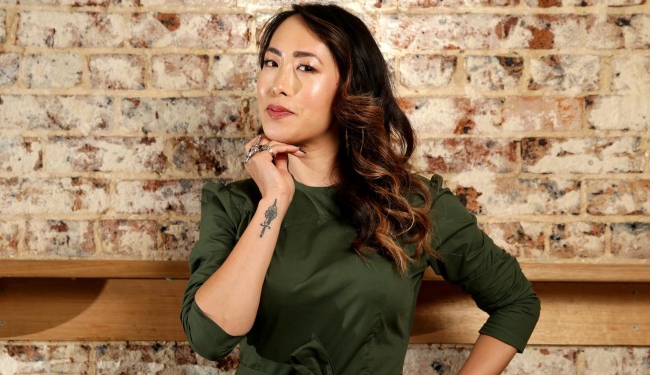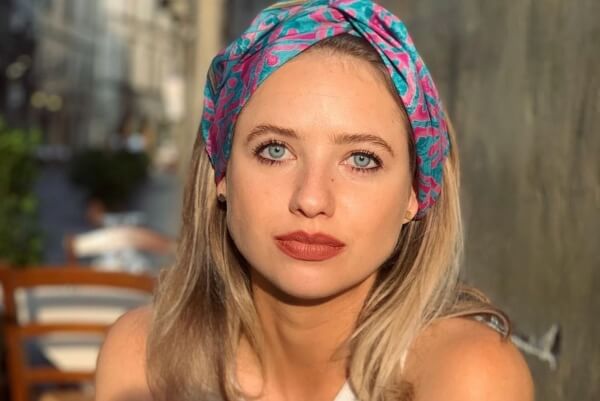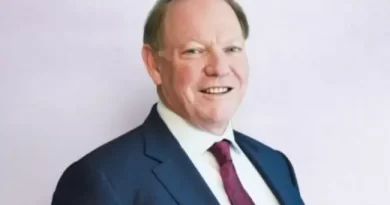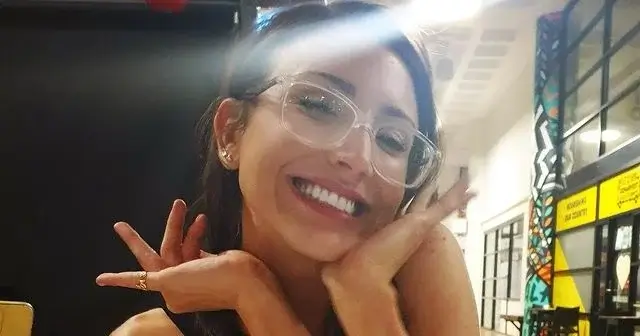Melissa Leong Biography, Age, Husband, Children, Parents, Net Worth, Height, Origin and Instagram
Table of Contents
Melissa Leong Biography
Melissa Leong is a food and travel writer, food media consultant, radio broadcaster, television presenter, MC and cookbook editor.
Melissa Leong has written for publications like The Australian Gourmet Traveller Restaurant Guide 2010, Time Out Sydney, Daily Addict and New Matilda. Also a food media consultant, she has worked with clients like patissier enfant terrible, Adriano Zumbo. Always on the go, she also hosts The Friday Delicious on Sydney’s FBi radio and has just completed working on the Good Food Shopping Guide 2011.
Melissa Leong Age
Melissa Leong was born in Sydney, Australia.
Melissa Leong Husband
Melissa Leong is married to her husband Joe Jones.
Melissa Leong Nationality
Melissa Leong is of Australian nationality.
Melissa Leong Interview
Below is Melissa Leong’s interview with The Cool Career:
Melissa, thank you for taking time out of your busy schedule for this interview. Can you take us to the start of your journey?
I grew up in the suburbs of southern Sydney in a place that’s come to be known as The Shire. Being one of only two Chinese families who went to my primary school, it wasn’t what you would call the most diverse of peer groups, but being different from the start was galvanising for me. I took pride in everything I could do that others couldn’t, and learnt to celebrate what made me, me.
From being on track to be a concert pianist, to ballet, athletics and academics, I enjoyed playing with the over achieving Asian stereotype, and I found through owning it, people come to accept who you are and even celebrate that. That hasn’t changed in my world of work – I didn’t know what I wanted to be when I grew up, but the strength in self believe and making it work that I cultivated as a kid has served me well in what my career has become.
Where did you go to High School and how was that experience for you?
I went to High School at The Inaburra School, a media specialist school in the southern suburbs of Sydney. It’s a Baptist private school, so it was pretty heavy on the religious front, but what I loved was that it was small enough for teachers and students to really come to understand each other and we were given a fair degree of independence to explore our interests and skills. I held a regional school music scholarship for part of the time I was there and was always involved in the orchestra and other musical groups, which was a great way of being involved. We also had a feeder program into a show that was on SBS, so a lot of us ended up learning to present, edit, film and direct early on…which, now as part of my job involves being a television presenter, has come full circle in a way!
I love that from an early age you realised just how important it is to own yourself and your differences. So, let’s chat high school. Did your high school play an important role in helping you choose your further education and future career?
The short answer is ‘not really’. I had a hopeless careers councillor who believed that you had to choose a job from a careers book and was thoroughly confused when presented with me, because I could have gone in a number of directions. I never wanted to be a doctor or a lawyer specifically, and I was on track to attend the Conservatorium of Music as a concert pianist if I wanted to, but in the end, I developed an injury in my shoulder that made that decision pretty clear.
I chose to go to Sydney University and study Economics because I figured it would be an open enough degree to let me explore my options and figure out where to from there. I ended up graduating with a double degree in Economics and Social Sciences, which turned out to be a good general undergraduate degree because I was able to chart my course through language, politics, economics, anthropology and sociology… all very valuable skills for the business of ‘adulting’.
Did you complete any internships or work experience placements in high school? Tell us about that experience.
My first placement was with Cleo Magazine. I loved fashion and still do…a lot! Interning is equal parts what you make of it, and who is responsible for you. If you’re lucky, and you show some initiative, people will trust you with getting involved in things that are interesting and engaging, and it was a good first look at magazine journalism in the lifestyle space.
Did you go to College, University, Tafe or another equivalent? Take us through the courses that you studied and why you chose them?
I have an undergraduate double degree from Sydney University in Economics and Social Sciences, with a focus in HR, Political Economy and Asian Studies. I started out as a straight B. Ec. Which I felt was too dry and directional, but augmenting my degree allowed me to study what I was probably more interested in, which is cultural, language and human studies. Why we do what we do, and did what we did and how that influences the world around us, to me, is far more interesting and philosophical…maybe less direct in terms of career prospects, but I found it enriching and that it informs a lot of how I navigate the world now. If nothing else, university is an excellent place to learn to think independently and not be afraid of that.
Couldn’t agree more. so what about present day? Tell us about your career journey so far. Who you have worked for, and explain any highlights.
That’s a long winded path! I actually ended up with more work as a professional make up artist when I graduated because I was working for Clinique and MAC at the time and friends who had finished film degrees needed help making work. I fell into that world for a few years which was fun and creative, but ultimately not intellectually stimulating enough for me.
I ended up working for a media buying tech company and spent a lot of time travelling to Asia for work, which really grew my sense of independence and lust for solo travel. Ultimately I ended up in advertising, working for companies like Singleton Ogilvy Interactive and The Works, producing and copywriting for brands like Coca Cola, Nokia and LG which is where food comes into it. This was the dawn of social media and we were all compelled to get involved…I chose food as a subject to engage in digital communities with, and through learning to communicate efficiently, I became a writer.
I started freelancing for magazines as a critic and did that in tandem for a few years before I finally quite and went full time freelance. I ended up turning those food contacts into a restaurant and food industry PR consultancy which lasted a about 5 years before I realised I missed writing. I moved to rural Tasmania for a break, which was about the time I was approached to co-write a book, and the whole thing snowballed back into journalism and food writing and now, television. My journey has been very non-strategic and highly based on intuition and gut-feel, but it’s an exercise in saying yes to opportunities that truly excite you, to always learn from those around you and to bite off more than you can chew.
How did you get into the job that you are in now?
I have worked for myself for the last decade. As a freelancer, I write for publications like Delicious Magazine, The Guardian and News.com.au, as a consultant I’ve worked with brands like Adriano Zumbo and Gelato Messina, in publishing, I’ve co-written, ghost written, sub edited or edited about 5 cookbooks and have just finished filming season 2 of The Chefs’ Line for SBS. Freelancing means hard work and working constantly – its not for lazy people or procrastinators. You are responsible for yourself, sometimes a handful of employees, paying your own super, and nobody pays you when you’re sick. It’s a commitment but if you are an independent thinker and you love something enough, you can make it work.
What is the hardest part of your current job?
Freelance is hard in general! You are the one networking for jobs, putting yourself out there and paying the bills. But if you love bringing your own world to life and driving your own machine then it can be really lucrative and satisfying, too.
What does a day a typical business day look like for you in your current job?
There is no typical day! I could be on a shoot for a cooking show, doing interviews with press, interviewing subjects for stories, on set for 16 hours shooting a television show, travelling somewhere new in the world to write about it… I get bored with repetition, so it’s perfect for me. I’m about to head to Slovenia for a travel story next week… that’s not a bad job assignment to have!
Slovenia, so jealous, that’s amazing Melissa. Who has been your hero, or greatest inspiration growing up and why?
The thing about becoming a grown up is that you learn not to have heroes. Heroes are not people, but an ideal constructed in a moment of time. The person you look to as a hero, is still a human who makes mistakes as well as moments of greatness, so ultimately placing that kind of pressure on someone isn’t fair, or real. Inspiration can come from anywhere, but for me, I am inspired by the idea of creative and financial freedom, of doing something well and feeling satisfied by that. My parents worked extremely hard and migrated from Singapore to Australia to give my brother and I the best shot at the best life possible, and that’s always in the back of my mind… take opportunities that are given to you with grace and do them justice.
What advice would you give girls who are interested in your career?
Work hard and be a nice person. You never know if that assistant on a job will become your next boss, or if you will become theirs. It’s a very simple premise but will always serve you well. Media and the food industry are hard places and when everyone wants your job, it can get deeply competitive. Be prepared to be told no, be prepared to feel lonely, but try to always surround yourself with people of all industries, and friends who will always cheer for your success and be there for you when the chips are down. Everyone needs to find their tribe.




